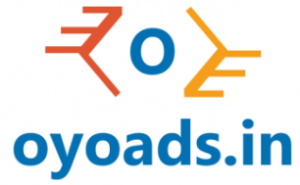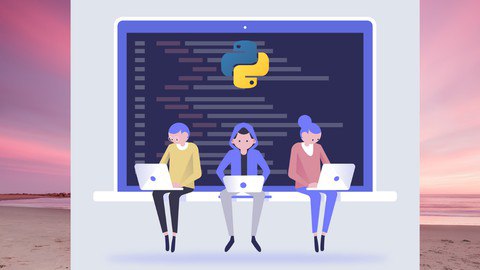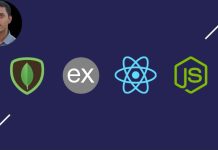Note:
If you guys are getting coupon expired or course is not free after opening the link, then it is due to the fact that course instructors provide only few hundreds or thousands of slots which get exhausted. So, try to enroll in the course as soon as it is posted in the channel. The Coupons may expire any time for instant notification follow telegram channel


Learn Python programming language from scratch to advanced level. Prepare for Python Certification exam & job interviews
What you’ll learn
-
Learn Python Programming from scratch to the most advanced level
-
Prepare for Python Certifications and Job Interviews
-
What is Python and Python Programming
-
Why to learn Python
-
History, Features, Application of Python Programming
-
Setup of Python Programming – Getting and Installing Python
-
Create and run the first Python Program
-
Variables and Data Types
-
Python Identifiers, Keywords, Reading Input, Output Formatting
-
Operators in Python – arithmetic, relational, assignment, logical, membership, identify, bitwise
-
Python programs for all types of operators
-
Decision making and Types of decision-making statements
-
Syntax, flowchart and programs for if, if..else, elif
-
Loops – Introduction, Types of loop (for, while, infinite, nested)
-
Break, Continue, Pass statements
-
Python programs for all types of loops
-
Numbers – Number Type Conversions, Random Number Functions, Trigonometric Functions
-
Mathematical Constants
-
Strings – Accessing values in Strings, Updating Strings, String Special Operators, Built-in String Methods
-
Lists – Python Lists, Accessing values in Lists, Updating Lists, Deleting List Elements, Basic List Operations
-
Built-in List Functions & Methods
-
Tuples – Accessing values in Tuples, Updating Tuples, Deleting Tuple Elements, Basic Tuple Operations
-
Built-in Tuple Functions, Difference between List and Tuple
-
Dictionary – Accessing values in Dictionary, Updating Dictionary, Delete Dictionary Elements
-
Properties of Dictionary Keys, Built-in Dictionary Functions and Methods
-
Data and Time – Tick, TimeTuple, Getting current time, Getting formatted time, Getting Calendar for a month
-
Functions – Defining a Function, Calling a Function, Passing by Reference vs. Passing by Value
-
Ways to write Function, Types of Functions, Anonymous Functions, Recursive Functions
-
Modules – What is a Module, Creating a Module, import Statement, The ‘from’ import Statement
-
Renaming and Locating Modules
-
Files I/O – Printing to the Screen, Opening and Closing Files, The open Function, The file Object Attributes
-
The close() Method, Reading & Writing Files, the write() Method, the read() Method, More operations on Files
-
Exceptions – What is Exception, Handling an Exception
-
The except Clause with No Exceptions and with Multiple Exceptions
-
The try-finally Clause, List of Standard Exceptions, Raising an Exception, Argument of an Exception
-
Classes and Objects – What is a Class, What is an Object, Creating a Class, Creating an Object, Self in Python, _init_ Method, Examples
-
Regular Expression – What is Regular Expression, Metacharacters, match(), search(), rematch() vs. research(), findall(), split(), sub()
-
GUI Programming – What is GUI Programming, Tkinter Programming, Tkinter Widgets
-
Building Your First Python GUI program with Tkinter
Description
Python Programming – course syllabus
Introduction to Python Programming
- What is Python Programming?
- History of Python Programming
- Features of Python Programming
- Why to learn Python Programming
- Application of Python Programming
Setup of Python Programming
- Getting Python
- Installation of Python
- Getting started with the first Python program
- Running the first Python Program
Variables and Data Types
- What is a variable?
- Declaration of variable
- Variable assignment
- Data types in Python
- Checking Data type
- Data types Conversion
- Python programs for Variables and Data Types
Python Identifiers, Keywords, Reading Input, Output Formatting
- What is an Identifier?
- Keywords
- Reading Input
- Taking multiple inputs from user
- Output Formatting
- Python end parameter
Operators in Python
- Operators and types of operators
a) Arithmetic Operators
b) Relational Operators
c) Assignment Operators
d) Logical Operators
e) Membership Operators
f) Identity Operators
g) Bitwise Operators
- Python programs for all types of operators
Decision Making
- Introduction to Decision making
- Types of decision-making statements
- Introduction, syntax, flowchart and programs for
a) if statement
b) if…else statement
c) elif statement
Loops
- Introduction to loops
- Types of loops
a) for loop
b) while loop
c) infinite loop
d) nested loop
- Break, continue and pass statement
- Python programs for all types of loops
Numbers
- Number Type Conversion
- Random Number Functions
- Trigonometric Functions
- Mathematical Constants
Strings
- Accessing Values in Strings
- Updating Strings
- String Special Operators
- Built-in String Methods
Lists
- Python Lists
- Accessing Values in Lists
- Updating Lists
- Deleting List Elements
- Basic List Operations
- Built-in List Functions and Methods
Tuples
- Accessing Values in Tuples
- Updating Tuples
- Deleting Tuple Elements
- Basic Tuples Operations
- Built-in Tuple Functions
- Difference between list and tuple
Dictionary
- Accessing Values in Dictionary
- Updating Dictionary
- Delete Dictionary Elements
- Properties of Dictionary Keys
- Built-in Dictionary Functions and Methods
Date and Time
- What is Tick?
- What is TimeTuple?
- Getting Current Time
- Getting Formatted Time
- Getting Calendar for a Month
Functions
- Defining a Function
- Calling a Function
- Passing by Reference versus Passing by Value
- Ways to write function
- Types of functions
- Anonymous function
- Recursive Function
Modules
- What is a module?
- Creating a module
- The import Statement
- The ‘from’ import Statement
- Renaming a module
- Using the dir() function
- The ‘from’ import * Statement
- Locating Modules
Files I/O
- Printing to the Screen
- Opening and Closing Files
- The open Function
- The file Object Attributes
- The close() Method
- Reading and Writing Files
- The write() Method
- The read() Method
- More Operations on Files
Exceptions
- What is Exception?
- Handling an Exception
- The except Clause with No Exceptions
- The except Clause with Multiple Exceptions
- The try-finally Clause
- List of Standard Exception
- Raising an Exception
- Argument of an Exception
Classes and Objects
- What is an Object?
- What is a Class?
- Creating a Class
- Creating an object
- Self in Python
- __init__ method
- Examples
Regular Expression
- What is a Regular Expression?
- Metacharacters
- match() function
- search() function
- re.match() vs re.search()
- findall() function
- split() function
- sub() function
GUI Programming
- What is a GUI Programming?
- Tkinter Programming
- Tkinter Widgets
- Building Your First Python GUI program with Tkinter
Who this course is for:
- Python Developers and Software Engineers
- Application Developers (Python, R)
- Anyone wishing to learn Programming in Python
- Python Developers – Web, JavaScript
- Data Scientists and Lead Data Scientists
- Data Engineers
- Data Analytics Consultants
- Data Consultants & Analysts
- Technical Architects
- Newbies and Beginners aspiring to make a career in Data Science, Machine Learning, Programming
- Machine Learning Engineers & AI Engineers
- Software Programmers
- Python Engineers
[maxbutton id=”1″ url=”https://www.udemy.com/course/python-programming-beginner-to-expert/?couponCode=PYTHON_COURSE_UPLATZ” ]










![Passive Income: Create & Sell Online Courses [Full Course]](https://oyoads.in/wp-content/uploads/passive-income-create-sell-online-courses-full-course_661cb1a9a14ff-218x150.jpeg)
![AI for Business Strategy & Planning [Masterclass]](https://oyoads.in/wp-content/uploads/ai-for-business-strategy-planning-masterclass_661cb19898162-218x150.jpeg)




![[100%OFF]Support Vector Machines in Python – SVM in Python 2019](https://oyoads.in/wp-content/uploads/2020/04/IMG_20200417_205943_393-218x150.jpg)






![[100% Free]Python Bootcamp 2020 Build 15 working Applications and Games (31.5 Hours)](https://oyoads.in/wp-content/uploads/2020/05/Python-Bootcamp-2020-Build-15-working-Applications-and-Games-1-100x70.jpg)

![[100% Free]Java Programming: Complete Beginner to Advanced](https://oyoads.in/wp-content/uploads/2020/05/IMG_20200519_054150_522-100x70.jpg)
